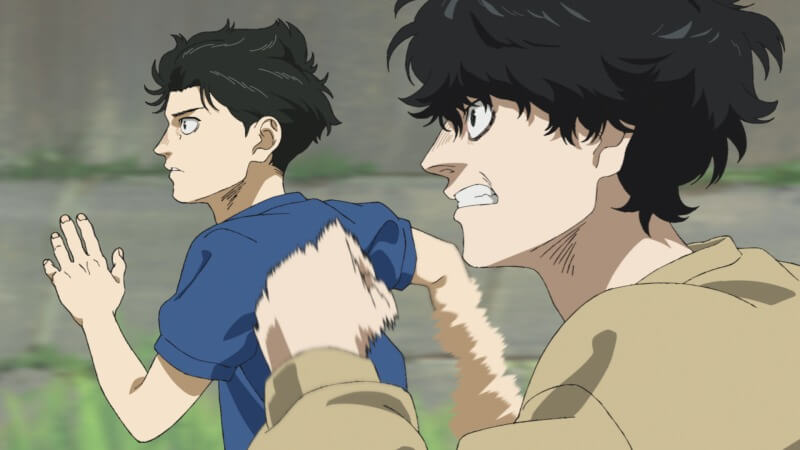100 Meters Asks if You Can Find the Meaning of Life in a 10 Second Sprint

“There’s one very simple rule in this world: Running the 100m faster than anyone else can solve almost anything,” says Togashi (Tori Matsuzaka), an elementary school boy who, like most of the characters in the film 100 Meters, speaks about the 100-meter dash as if it were a matter of life and death. When he says this for the first time, it’s a bit unclear how seriously we’re supposed to take it: is this an overconfident child whose entire life up until now has been defined by how exceptionally fast he can run, or is this the film stating its unvarnished thesis in its first 10 minutes?
Thankfully, that question isn’t so easily answered, and over the course of this 100-minute stunner, we watch these runners grapple with the exaltation and absurdities of basing their entire existence around running 100 meters in a straight line, each bump in the road portrayed with dynamic, shifting animation.
It’s a story based on the manga of the same name by Uoto, the author behind Orb: On the Movements of the Earth, an acclaimed work of historical fiction about the discovery of heliocentricity that both celebrates and critiques humanity’s unending pursuit of scientific truth. That manga’s subject matter, a decade-spanning ideological struggle over humankind’s place in the universe, feels like a fitting topic given Uoto’s educational background in philosophy. But before he wrote the thematically grandiose Orb, he handled 100 Meters, which is about track and field, something that, at least on paper, is far less imposing than that other story’s cosmic aspirations.
It sounds like an odd oeuvre in theory, but in practice it makes perfect sense: 100 Meters is less a standard sports story about “willpower” and “determination” and more an introspection on why people care enough about about running to sacrifice their time, body, and mental well-being in a Sisyphean contest of maybe shaving a few milliseconds off a personal best. It’s not a straightforward and overly simplistic critique of sports, but a genuine, rigorous inquiry that ends up using short-distance sprinting as a means of exploring how we derive meaning from not only running or competition, but from basically anything.
It’s heady, dense, and its characters speak directly at the camera while talking like philosopher-kings despite the fact that, from one point of view, they’re just a bunch of dudes who run super fast. But whenever it risks becoming overbearing or impenetrable, the film slips into fits of intensive animation that externalize these internal battles, as these runners attempt to not only outspeed their opponents, but also the nihilism of an uncaring universe that doesn’t particularly care about their PB. It all makes for a well-considered balancing act that flips through these characters’ lives to catalog their uphill battles.
The story primarily centers on the previously mentioned Togashi, jumping from his childhood to young adulthood as he grapples with the expectations and anxieties that come with being a prodigy. In elementary school, he crossed paths with the transfer student Komiya (Shota Sometani), teaching him the ropes before realizing too late that he had created a monster, someone who is “deadly fast,” as one of his victims puts it.
-

-

-

-

-

-

-

-

-

-

-

-

-

-

-

-

-

-

-

-

-

-

-

-

-

-

-

-

-

-

-

-

-

-

-

-

-

-

-

-








































